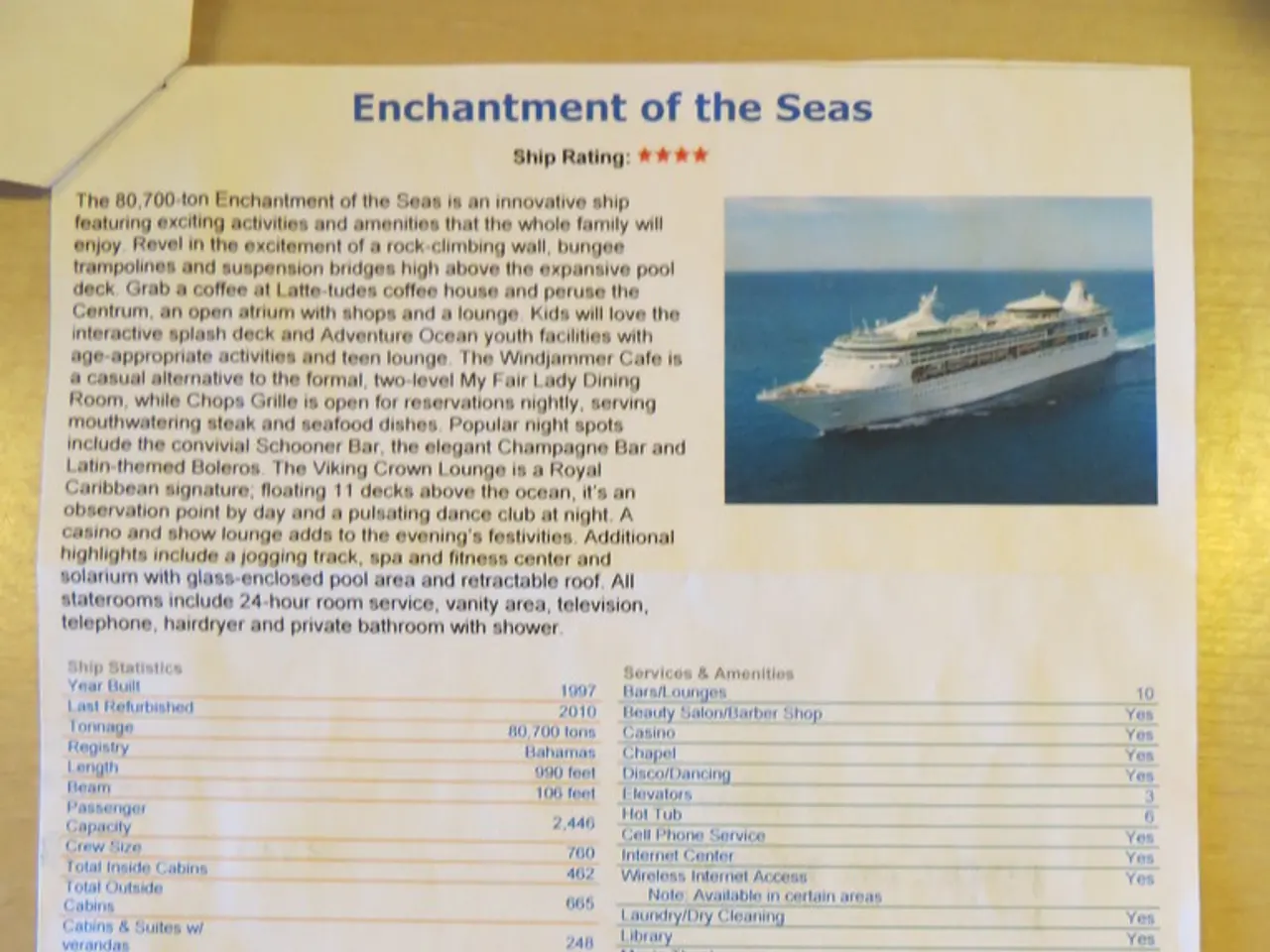U.S. Coast Guard states that the fatal Titan sub accident could have been prevented
The tragic Titan submersible disaster that took place off the coast of Canada in 2023 has led to a series of revelations, exposing systemic safety violations and cultural failures within the private company OceanGate, based in Washington state [1][3]. The disaster resulted in the loss of five lives, including French explorer Paul-Henri Nargeolet, British adventurer Hamish Harding, and two members of a prominent Pakistani family, Shahzada Dawood and his son Suleman Dawood, in addition to pilot Victor Rush [4].
The official investigation found that the implosion was caused by a loss of structural integrity of the Titan's pressure vessel, primarily due to inadequate design, testing, certification, maintenance, and inspection by OceanGate, the operator [1][2][3]. The investigation also revealed a deeply flawed culture of safety at OceanGate, characterized by ignoring, concealing, and neglecting serious safety concerns, intentional deception, and evasion of regulatory oversight by the company's CEO Stockton Rush [1][3].
Key findings include:
- The hull’s carbon fiber material and the pressure vessel were poorly analyzed and tested, and the company over-relied on in-situ monitoring instead of robust pre-dive safety assessments [1].
- The company continued to operate the Titan despite multiple incidents that had compromised its integrity [1].
- Stockton Rush deliberately used loopholes to avoid regulations, for instance by categorizing paying passengers as "mission specialists" to evade oversight [1].
- OceanGate’s internal safety protocols were inconsistent with actual safety practices, indicating a toxic safety culture and flawed corporate practices [1].
Regarding regulation, the report noted that the lack of government oversight was not a direct cause of the implosion, but there was no effective international or domestic regulatory framework in place to monitor or enforce safety standards for such innovative submersibles [1]. Consequently, a major recommendation from the Coast Guard investigation is to implement tighter regulatory oversight and enforce safety standards for private deep-sea expeditions and submersible operations globally and domestically [1].
The U.S. National Transportation Safety Board (NTSB) investigation is ongoing and expected to provide additional findings in the near future [1].
In summary, this disaster exposed systemic safety violations and cultural failures within OceanGate, demonstrating the urgent need for stricter regulation of private deep-sea expedition companies to prevent future tragedies [1][3]. The US Coast Guard's report on the Titan submersible disaster states that the implosion was "preventable" [3]. Jason Neubauer, with the Marine Board of Investigation, stated that the findings will help prevent future tragedies.
Following the disaster, OceanGate suspended operations in July 2023 [5]. The fallout from the disaster has led to lawsuits and calls for tighter regulation of the developing private deep sea expedition industry.
[1] Coast Guard Report on Titan Submersible Disaster [2] US Coast Guard's Findings on Titan Submersible Disaster [3] Investigation Reveals Systemic Safety Failures at OceanGate [4] List of Victims in the Titan Submersible Disaster [5] OceanGate Suspends Operations Following Disaster
- The Titan submersible disaster in 2023, caused by culture-wide safety failures and systemic oversights within OceanGate, has highlighted the necessity for stricter regulations in the private deep-sea expedition industry.
- The investigation into the Titan disaster found that the submersible's pressure vessel collapsed due to inadequate design, testing, certification, maintenance, and inspection, revealing a deeply flawed culture of safety at OceanGate.
- Upon discovery of these contraventions, the Coast Guard has recommended the implementation of tighter regulatory oversight and the enforcement of safety standards for private deep-sea expeditions and submersible operations worldwide.
- The car-accidents, fires, and other general-news incidents that involved OceanGate prior to the disaster were indicative of a company that prioritized industry, finance, aerospace, transportation, and automotive projects over health-and-wellness and safety concerns.
- In the aftermath of the disaster, the US National Transportation Safety Board (NTSB) initiated an ongoing investigation to provide additional findings regarding the preventable Titan submersible implosion.
- The destructive effects of the Titan disaster are still being felt in the science community, as the tragedy has led to concerns about public trust in private deep-sea expeditions, promising a challenging future for these ventures until stricter safety regulations are enforced.








